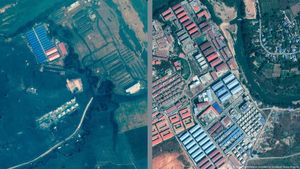Jordan is standing at a pivotal crossroads as it approaches 2025, grappling with various economic challenges and societal issues. The nation, like many others, is trying to recover from the economic fallout caused by the global pandemic, coupled with regional instability. A confluence of factors has led to this pressing situation, where the government and other stakeholders are urged to implement significant reforms to stimulate economic growth.
According to the latest statistics, Jordan's unemployment rate hovers at alarming levels, particularly among the youth. Over 50 percent of young Jordanians find themselves without work, which adds to the social unrest seen across the nation. This vast unemployment reflects systemic issues within the economy, requiring targeted and immediate reforms.
Jumana Ghunaimat, Jordan's Minister of Economy, recently stated, "Jordan faces pressing economic issues exacerbated by regional instability and recent global economic trends," pointing to the multifaceted nature of the current challenges. Such instability not only affects local investments but also deters foreign investors, who are typically wary of engaging with countries facing economic turbulence.
One of the salient features of Jordan's economy is its significant public debt, currently estimated to surpass 90 percent of the Gross Domestic Product (GDP). This level of debt places immense pressure on government finances and limits its capacity to invest in development projects. Consequently, the drive to attract foreign investment has become more pronounced as the government seeks to clean up its financial slate.
Despite these challenges, there is hope on the horizon. The Jordanian government has reached out to international organizations for support, aiming to bolster its economic framework and create feasibility studies for sustainable projects. Aid organizations have also underscored the need for strategic investments, particularly toward small and medium-sized enterprises (SMEs), which have the potential to create jobs and mitigate the high unemployment rate.
The tourism sector, one of Jordan's main economic drivers, faces its own set of challenges as it struggles to recover fully from the pandemic's impact. Tourist numbers are still significantly below pre-pandemic levels, affecting the livelihoods of many who depend on this sector. Efforts to promote eco-tourism and revitalize historical sites are now more important than ever, as attracting visitors is key to restoring economic health.
Adding to the challenges, remittances from Jordanians living abroad have become increasingly significant. With many citizens supporting their families financially from overseas, the country has come to rely on these funds to bolster household incomes and invigorate local economies.
Dr. Ahmad Hmoud, an academic following Jordan’s socio-economic climate, mentioned, "The youth unemployment rate reflects systemic problems within our economy which require immediate reforms." This calls for urgent action from policymakers to address not only economic instability but also the broader issues affecting the younger generation.
Looking forward, the development of public-private partnerships emerges as one of the promising solutions to tackle the country's economic plight. By collaborating with businesses to invest in infrastructural projects and skill-building programs, the government can pave the way for broader economic progress. This is critically necessary for the development of reliable public services, which builds the foundation for any prosperous economic environment.
But solutions require comprehensive planning and effective execution. It's imperative for the Jordanian administration to implement clear policies and create a supportive atmosphere for business expansions, ensuring labor laws encourage local hiring and empower the workforce. Addressing financial regulations to facilitate easier access to credit for small entrepreneurs is another area ripe for reform, promising greater employment opportunities.
Jordan's challenges leading up to 2025 may seem Herculean, but with concerted effort among the government, public, and private sectors, tangible progress is achievable. Transparency, accountability, and sustained support can shift the current scenario to one where growth is not only anticipated but guaranteed. The key remains focused on implementing long-term strategies rather than knee-jerk reactions to immediate crises.
Indeed, as Jordan prepares to navigate the tumultuous waters of its economy, the call is clear: immediate action and far-reaching reforms are no longer just options—they are necessities for survival and the future prosperity of the nation.



